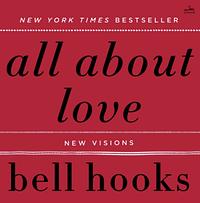Take a photo of a barcode or cover
inspiring
reflective
medium-paced
emotional
funny
hopeful
informative
inspiring
reflective
fast-paced
men on average have been so evil lately that i needed the reminder to see their actions from a behaviorist perspective rather than biological but goddamn is their conditioning really expansive😃😃
informative
reflective
medium-paced
informative
inspiring
reflective
slow-paced
informative
reflective
fast-paced
emotional
informative
inspiring
reflective
fast-paced
One of those books that I’m glad I read, and could say I agreed with in general, but with some pretty heavy asterisks in most chapters. This was a complicated read; most of its cultural observations are still spot-on, 25 years later, but it also felt incredibly dated in other aspects. E.g.: yes, some people do use casual sex as an unhealthy coping mechanism to avoid attachments with others... but you could also say that about literally any activity (even reading - guilty as charged!), and singling out sex specifically is not doing the book any favors.
A positive: I’m extremely relieved that this book’s definition of love is both encompassing (not limited to the trinary romantic/platonic/familial model), but also specific enough to be usable (a desire for mutual growth and support). And I particularly like hooks’ definition of love as a verb, rather than a noun; it shifts the focus away from pointless discussions on what love “is”, and toward what love “does”; it’s not a role, it’s a series of actions and habits. As a whole, I’d call All About Love a great introduction to compassionate politics. The keyword there being introduction, as I definitely think hooks has blind spots, like everyone else – and even her own later works attempt to fill them in. (I know this was published in the early 2000s, but some of the gender-based observations could have really benefitted from transfeminist perspectives.)
I found I enjoyed this book more when I stopped reading it as a self-help guide and more as reflections on hooks’ own life, because there’s some aspects of the framework that I disagree with. People in other reviews have written that this book is more religious than they were expecting; and while I do think hooks takes care to separate organized religion from spirituality, and acknowledge the flaws of each, there is very much a Christian slant to these essays (another reason why the casual sex observation didn’t quite sit right with me), even down to hooks drawing a parallel between declining church attendance and the decline of society as a whole. And while I think it would absolutely help some – being able to see the bigger picture outside yourself doesn’t come naturally to everyone – I don’t think you need to live a spiritual life to understand this principle. To me, it came across the same way as a bewildered Christian who can’t wrap their head around the concept of atheists having a sense of morality. In the same way, I take issue with the idea of “estrangement from family members” being held in direct opposition to a “path of healing”. It’s another of hooks’ ideas that sounds fantastic on paper, presented in idealistic, heal-society terms – and it would be fantastic for everyone if we all could heal broken bonds rather than severing them – but in practice, this puts unequal weight on victimized parties to just ‘be the bigger person’ and forgive their abusers. As with spirituality, it does work for some; I just disagree with the presentation of it as a solution for all. That said, I do think this was a good foundation to hooks’ other books, as now I have a better sense of where she’s coming from, her values, her ideals, etc.
The last thing I wanted to say, more of a personal gripe than anything else, was on hooks’ reading of societal greed – specifically, using a framework of greed to explain the phenomenon of addiction. Arguing that greed is a cornerstone of society’s lovelessness was fine; I agree. Consumerism and individualism are two arms of the same social evil; I agree. But comparing consumerism to the physiological experience of addiction to alcohol or drugs? Frankly, that specific observation was so wildly out of touch with the reality of addiction that I nearly put down the book then and there. Consumerism is, at best, a psychological dependency; comparing it to an addiction is just flat-out wrong. And that’s to say nothing of hooks putting money-motivated drug dealers and addicts looking for their next fix in the same category of greed – because if they “worship” something other than love, they’re worshipping selfishness – and are thus incapable of forming truly loving bonds with others. I shouldn’t have to mention that there are as many reasons for getting into, and remaining with, an addictive substance as there are addictive substances themselves – yet she seems (at least to me) to paint all addicts with the same broad brush, and paired with the judgmental undertone, I don’t really see this as helping anyone. I genuinely hope her perspective on this changes in future writings.
I don’t know. Maybe I’m just missing something, but All About Love left me feeling more disappointed than inspired. And that really sucks, because I wanted to love it! It just really didn’t resonate in the way I hoped, despite being a good book overall. Maybe I just wasn’t the correct audience for it. Will still be reading more of bell hooks’ catalog, but probably won’t put this one on my reread radar.






